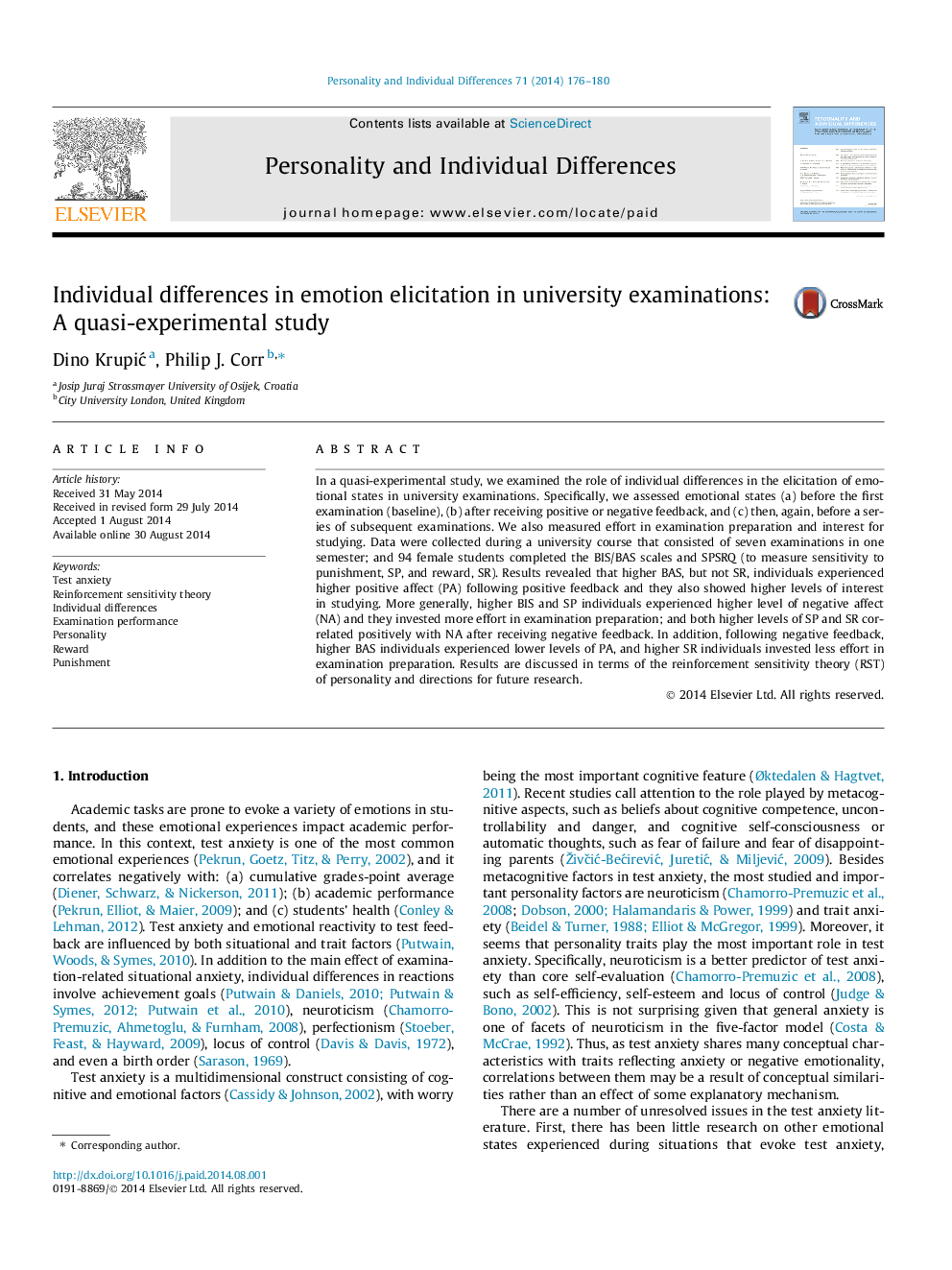| Article ID | Journal | Published Year | Pages | File Type |
|---|---|---|---|---|
| 890386 | Personality and Individual Differences | 2014 | 5 Pages |
•Personality predicts examination-related induction of positive/negative emotional states and motivation.•BIS relates to the induction of negative emotional states.•Different measures of the BAS show a different pattern of associations with induced emotions.•Importance of individual difference research in higher education.
In a quasi-experimental study, we examined the role of individual differences in the elicitation of emotional states in university examinations. Specifically, we assessed emotional states (a) before the first examination (baseline), (b) after receiving positive or negative feedback, and (c) then, again, before a series of subsequent examinations. We also measured effort in examination preparation and interest for studying. Data were collected during a university course that consisted of seven examinations in one semester; and 94 female students completed the BIS/BAS scales and SPSRQ (to measure sensitivity to punishment, SP, and reward, SR). Results revealed that higher BAS, but not SR, individuals experienced higher positive affect (PA) following positive feedback and they also showed higher levels of interest in studying. More generally, higher BIS and SP individuals experienced higher level of negative affect (NA) and they invested more effort in examination preparation; and both higher levels of SP and SR correlated positively with NA after receiving negative feedback. In addition, following negative feedback, higher BAS individuals experienced lower levels of PA, and higher SR individuals invested less effort in examination preparation. Results are discussed in terms of the reinforcement sensitivity theory (RST) of personality and directions for future research.
